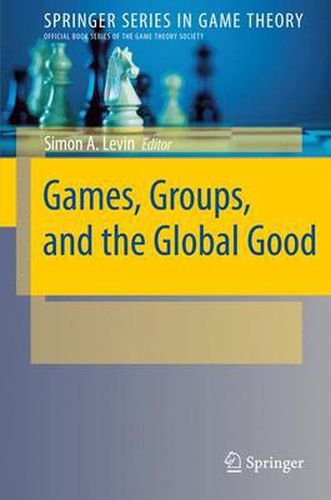Readings Newsletter
Become a Readings Member to make your shopping experience even easier.
Sign in or sign up for free!
You’re not far away from qualifying for FREE standard shipping within Australia
You’ve qualified for FREE standard shipping within Australia
The cart is loading…






This title is printed to order. This book may have been self-published. If so, we cannot guarantee the quality of the content. In the main most books will have gone through the editing process however some may not. We therefore suggest that you be aware of this before ordering this book. If in doubt check either the author or publisher’s details as we are unable to accept any returns unless they are faulty. Please contact us if you have any questions.
How do groups form, how do institutions come into being, and when do moral norms and practices emerge? This volume explores how game-theoretic approaches can be extended to consider broader questions that cross scales of organization, from individuals to cooperatives to societies. Game theory’ strategic formulation of central problems in the analysis of social interactions is used to develop multi-level theories that examine the interplay between individuals and the collectives they form. The concept of cooperation is examined at a higher level than that usually addressed by game theory, especially focusing on the formation of groups and the role of social norms in maintaining their integrity, with positive and negative implications. The authors suggest that conventional analyses need to be broadened to explain how heuristics, like concepts of fairness, arise and become formalized into the ethical principles embraced by a society.
$9.00 standard shipping within Australia
FREE standard shipping within Australia for orders over $100.00
Express & International shipping calculated at checkout
This title is printed to order. This book may have been self-published. If so, we cannot guarantee the quality of the content. In the main most books will have gone through the editing process however some may not. We therefore suggest that you be aware of this before ordering this book. If in doubt check either the author or publisher’s details as we are unable to accept any returns unless they are faulty. Please contact us if you have any questions.
How do groups form, how do institutions come into being, and when do moral norms and practices emerge? This volume explores how game-theoretic approaches can be extended to consider broader questions that cross scales of organization, from individuals to cooperatives to societies. Game theory’ strategic formulation of central problems in the analysis of social interactions is used to develop multi-level theories that examine the interplay between individuals and the collectives they form. The concept of cooperation is examined at a higher level than that usually addressed by game theory, especially focusing on the formation of groups and the role of social norms in maintaining their integrity, with positive and negative implications. The authors suggest that conventional analyses need to be broadened to explain how heuristics, like concepts of fairness, arise and become formalized into the ethical principles embraced by a society.